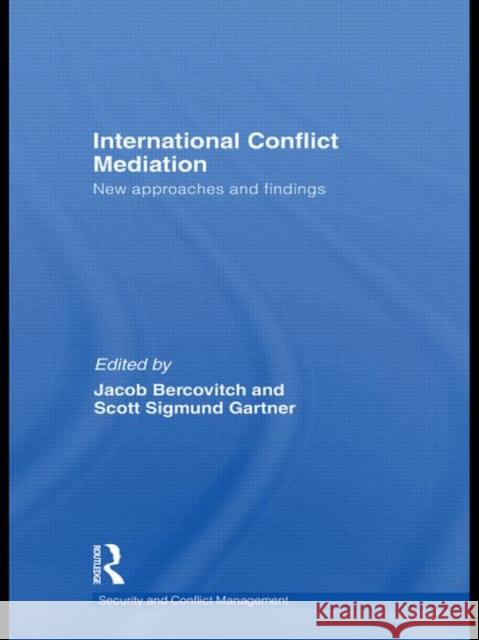International Conflict Mediation: New Approaches and Findings » książka
International Conflict Mediation: New Approaches and Findings
ISBN-13: 9780415453097 / Angielski / Twarda / 2008 / 318 str.
This book examines how new empirical approaches to mediation can shed fresh light on the effectiveness of different patterns of conflict management, and offers guidelines on the process of international mediation. International conflict mediation has become one of, if not the most prominent and important conflict resolution methods of the early 21st century. This book argues that traditional approaches to mediation have been inadequate, and that in order to really understand how the process of international mediation works, studies need to operate within an explicit theoretical framework, adopt systematic empirical approaches and use a diversity of methods to identify critical interactions, contexts and relationships. This volume captures recent important changes in the field of international conflict mediation, and includes essays by leading scholars on a variety of critical aspects of conflict management, using state of the art analytical tools and up to date data. This book will of great interest to scholars of peace and conflict studies, methods in social science, and of International Relations in general.
The field of international conflict mediation is currently undergoing a revolution, which is fundamentally challenging and changing our understanding of conflict resolution.
Largely driven by UN actions, international conflict mediation has become one of, if not the most prominent and important conflict resolution methods of the early 21st century. A number of quantitative data sources on conflict management have recently become available to scholars, facilitating an explosion of quantitative-based studies on international mediation. The proposed book exemplifies this blast, and is very much at the forefront of it. The topicality of mediation has attracted a wave of new scholars and approaches, bridging the divide between those who studied conflict management and those who analyzed conflict occurrence and conduct.
This book aims to capture these important changes in the field of international conflict mediation, and includes essays by leading scholars on a variety of critical aspects of conflict management with state of the art analytical tools and up to date data.











